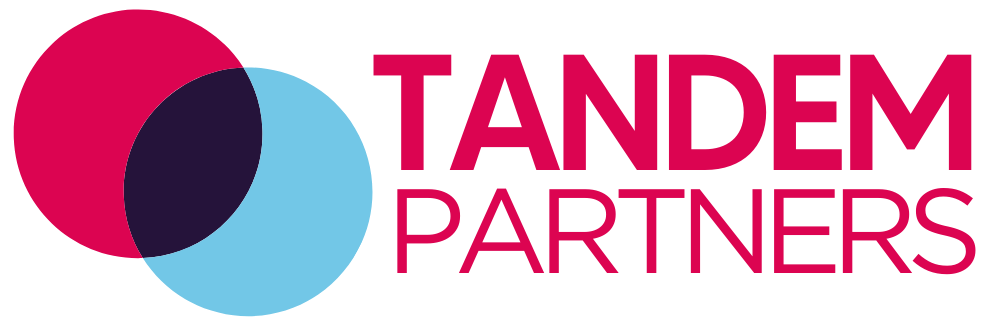Are We Facing a New Era of Talent Management? Key Learnings from the National HR Summit
News

For those of you who don’t know me, my area of speciality at Tandem Partners is emerging talent, which largely consists of a Millennial audience. Recently, I attended the National HR Summit, where I had the privilege of hearing from a number of top HR practitioners from both local and international organizations. The event yielded lots of new insights and thought provoking ideas. I’ve highlighted those that resonated most with me and what we’re currently seeing in the Australian HR sector.
7-Month Tenure: Is This the New Loyalty?
In his keynote speech, Innovative HR: Enabling the Workplace of Tomorrow, David Mallon, Head of Research at Bersin by Deloitte introduced key findings from 2017 Deloitte Global Human Capital Trends. Millennials featured a lot throughout his talk, as it did with other speakers, and alongside the multi-generational workforce this will likely be a topic of regular discussion in your HR department.
One of Mallon’s most interesting points when discussing Millennials was that his research showed that this generation views a 7-month tenure as a sign of loyalty! It may sound shocking, but consider the different context Millennials grew up in: an era of constant change, the growth of offshoring, outsourcing, redundancy, restructure, ‘shared service centers,’ siloed role functions and a lack of career growth. An era where the words ‘technological advancements,’ ‘cost savings’ and ‘innovation’ often come hand in hand with job losses. At the same time, they’re the generation that is most likely to list Corporate Social Responsibility and authentic value proposition among their top priorities, as opposed to salary or job title.
For Millennials, dynamic environments represent the world they were born into. Perhaps that’s the reason why they find it normal to leave an employer when they feel they aren’t getting what they need to feel happy and engaged, rather than seeing it as ungrateful.
Stop Doing Leadership, Be the Leaders
A major topic of discussion at the conference was how we can effectively lead this new workforce. Today’s Managers seem to be stuck in an uncomfortable position of ‘jack of all trades’ – they have to provide day to day management but also be people’s aspirational role models.
Maybe we’re asking too much of our Managers to juggle so many responsibilities, leadership (sharing perspectives, knowledge, experience, mentoring or ‘just’ making time to listen to what their colleagues need) doesn’t exclusively have to belong to formally appointed Managers. There are a wealth senior staff in organizations who have significant experience, many insights to share and stories to tell, yet do not have people management responsibilities. These people are often the ‘knowledge custodians’ within the organization.
These ‘non-people leaders’ could be the solution to how we manage knowledge sharing and ensure the legacy and history of an organization are transferred to the new generations coming through. Plus, engaging informal leaders could also take the pressure off formally appointed Managers and facilitate better cross divisional relationships and understanding in multi-generational groups.
The other benefit of these informal mentor programs is that it allows your business to leverage the acquired knowledge of the baby boomer generation, whilst keeping this group of people engaged and feeling valued.
Is it time we stopped trying to ‘do’ leadership, and instead empowered our top performers to ‘be’ the leaders?
Are We Facing a New Era of Talent Management?
Australia’s contingent labour market growth and the lack of available technology (LinkedIn, Facebook, Applicant Tracking Systems) for talent pooling in this sector, was another significant HR trend that was discussed at the HR Summit. Does this lack of technology reflect that organizations are not yet ready to embrace a ‘just-in-time’ (and ‘just-for-a while’) concept of work assignments that would leave the 9-to-5 as one of many ways of getting things done in business, rather than the predominant approach? With the growth of technology and greater freedom at work, this thinking may soon need to change.
However, it’s not just the contingent workforce or technologies that enable us to work from anywhere that suggest we should re-model the way we look at recruitment and employee loyalty. With shorter employment engagement, ‘swap agreements’ may be a future consideration for how we keep people engaged. ‘Swap agreements’ represent a collective pooling of organizations in one industry sector that offer inter-organizational secondments. This way employers give employees the diversified experience they often seek elsewhere, but also increase the probability of them returning.
Reflecting on these trends, it’s easy to see why we are placing more and more value on networking. Whether that be trying to leverage ‘boomerang hires’ via alumni networks or attempting to establish a more effective contingent network, staying socially connected is increasingly important.
Closing Thoughts
With contingent work rising in popularity, generations with different values coming into the workforce and organizations struggling to adjust leadership structures to suit these demands, talent management as we know it is changing. Is your company ready to facilitate a multigenerational creative dialog that promotes change and innovation?
Refine results
Keywords
Contact Us
Categories
News
HR Leader Series


